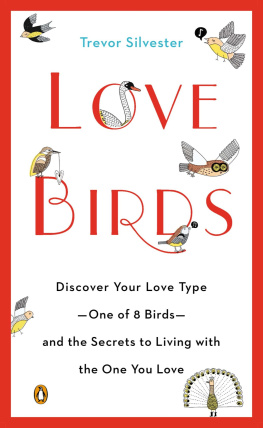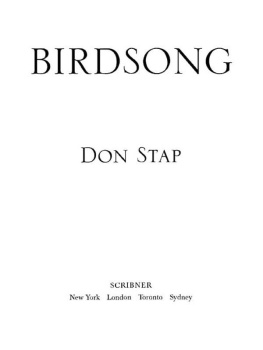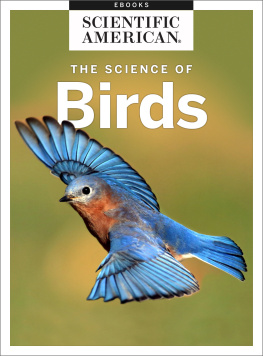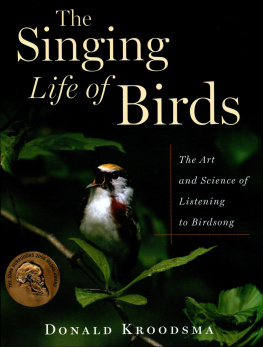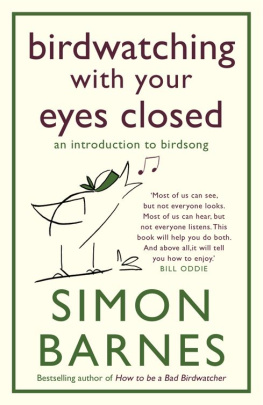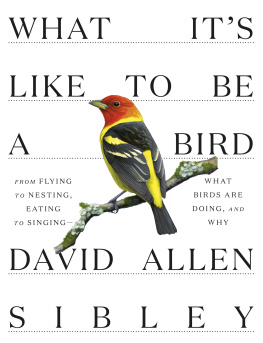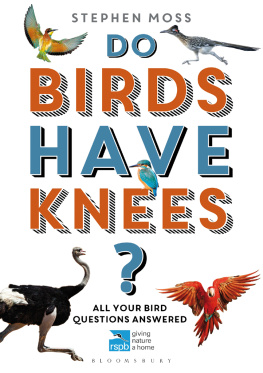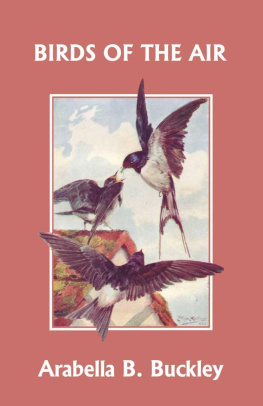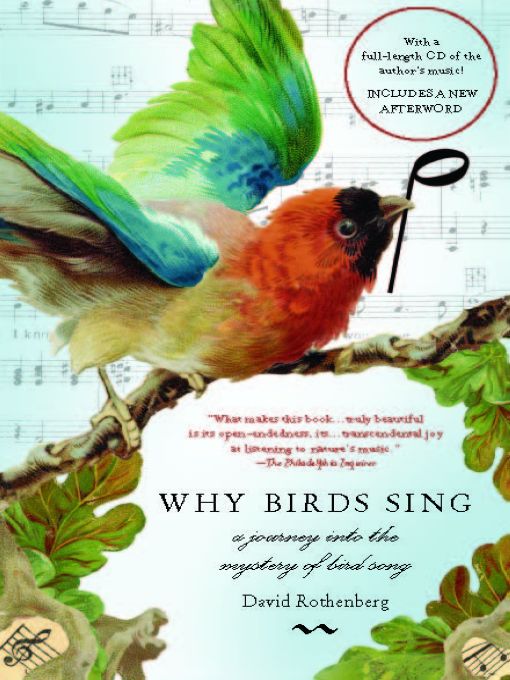
Table of Contents
Praise for Why Birds Sing
David Rothenberg is one of the rare musicians who is devoted to exploring the voices of the natural world. I would hope this book might encourage others to follow suit.
Paul Winter, founder of Living Music
and the Paul Winter Consort
Why Birds Sing is a witty, insightful, intrepid, and delightful meditation on the limits of science and reason to comprehend not only birdsong but all of natures mysteries.
John Horgan, author of The End of Science and Rational Mysticism
Measured in new ideas and speculations per pound, this book leads the pack.
Birding Magazine
Impressive and stimulating: an enticing exploration.Kirkus Reviews
Rothenberg delves heartily into the lovely and strange structures of bird songs, and finds enough syllables, rhythms and syncopations to fill a jazz encyclopedia.
Publishers Weekly
We meet many interesting characters in these pages: the birds, of course, from song sparrow to mockingbird, and the people, from poets John Clare and Walt Whitman to the composer Olivier Messiaen and many contemporary researchers in diverse, arcane fields. Readers will not shrug off mere starling songs again.
Library Journal
Why Birds Sing transforms one of those taken-for-granted things into lets-think-about-it-again stuff.
New York Times
Rothenberg stalks the mystery brilliantly, but in the end it eludes him. Perhaps, he suggests, that like us, birds sing for joy, simply because they can.
Los Angeles Times
With a musicians ear and a poets heart, he seeks to describe, more than decode, the nearly boundless richness of bird songs beauty.
Sy Montgomery, Discover
Rothenberg is a participant in the passerine orchestra, not just an observer. Benny Goodman, eat your heart out!
E Magazine
The authors infectious enthusiasm extends a winningly simple invitation: to listen and learn
Lawrence Norfolk, Sunday Telegraph
Rothenberg tackles his question with delight. Ultimately, he is most concerned with wonder.
Anthony Doerr, Boston Globe
A remarkable book full of information and insight.
Parabola
You will never hear birds the same way again.
Claudia Marshall, WFUV Radio
An intimate look at the most lovely of natural phenomena, with surprising insights about the origin of music.
Bird Times
An exuberant book, rich with a love for bird songs and full of the mystery they evoke in the human spirit.
Orion
Theres plenty of science in this lyrical book, along with an open sense of wonder.
Bostonia
His trained mind loves the clarity and order that science seeks, but Rothenberg also delights in the chaotic and the inexplicable. He is a science/art amphibian.
Simon Barnes, New Scientist
A timely book, and likely to be a popular one.
Andrew Motion (poet laureate of England), The Guardian
Never before have I read anything, fiction or non-fiction, that so elegantly unites science and art to delve deeper into the mystery of life.
The Evening Sun
ALSO BY DAVID ROTHENBERG
Is It Painful to Think?
Hands End
Sudden Music
Blue Cliff Record
Always the Mountains
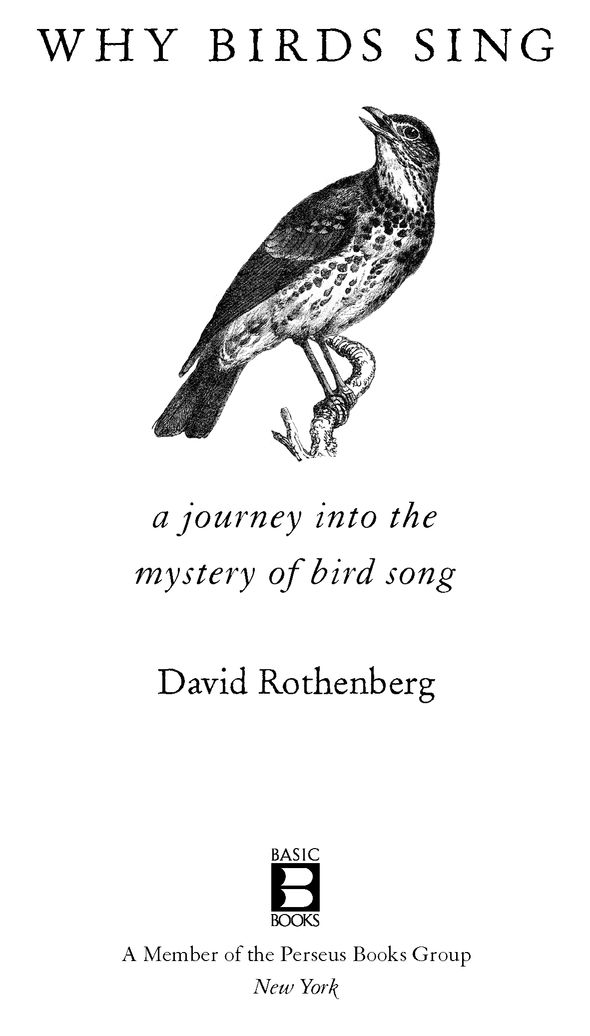
For my father
The birds sing blissfully until the joy
is so great as to be unbearable:
this joy cannot be heard from afar,
but if you come near it, you will succumb.
REB NACHMAN
Preface
IN 2000, the year I began to play music live with birds, I met a white-crested laughing thrush who changed my sense of how music emerges out of nature and how melodies can cross from one species to another. That encounter began the journey that is this book, an attempt to answer the beguiling question of why birds sing.
Some of you may consider it to be a simple question with an easy answer: birds sing for the sheer joy of it, because they can. Others may believe bird song to be fully explained by science: birds sing to attract mates, to prove their genetic fitness with exhausting displays of virtuosity, or defend their territory with angry sounds. Surely there exists some elegant, easy explanation for the beauty of bird song, perfectly consistent with the principles of natural selection? The mystery turns out to be far deeper. The humble question, Why do birds sing? forces us to reconsider what music is and where it came from, what sorts of thinking animals might do and to what extent we can communicate with them. Which of our human abilities are best suited to enter the minds of other species? We should not dismiss the possibility that pleasure in song may be something humans and birds can share.
The path toward an answer migrates through songs from birds far and wide, from single sneeps to half-hour arias, following the tiny marsh warbler from Belgium to Zambia and back, listening to the songs he picks up along the way. It leads through thick tomes of scientific data, including a two-hundred-page study of the wood pewees song that contains only three notes. It calls for learning the difference between mockingbird and nightingale, neither to praise nor to mock them but to figure out how to honestly listen and join in. It takes us through poems that glean rhythm and meaning out of fleeting sounds never designed for humans to hear, through music from many human cultures full of inspiration from the avian world, and ends in an Australian rainforest, where I play along with one of the shyest yet grandest singers in the world, the Alberts lyrebird.
The National Audubon Society says that seventy million people in the United Statesan astonishing one-quarter of the populationcall themselves bird watchers. Many of us were first lured into the twittering world of birds through their sounds, but we often stop listening as soon as we identify what we cannot see darting through the trees. This book is for those who want to take a deeper listen. Slow down these sounds and you will hear much more nuance and structure. Print them out and they become complex rhythmic images. A small number of dedicated investigators from both science and art have scrutinized these avian songs in an effort to capture some of their spirit.
I come to this project from several sides. As a musician, I have always tried to develop my work through listening and learning from the natural world, while never quite sure what this really means in practice. I wish my music could be at once as spontaneous and as correct as what birds sing, although I dont believe it can easily be so. From imitating nature on my own instruments to playing along with prerecorded natural sound, I have moved toward direct interaction with birds as they sing.
As a philosopher, I have long been wrapped up in the question of what humanity must do to find a home in the natural world. The seemingly innocent topic of bird song shows us that we need a combination of many visions of nature to make sense of the whole. This book may present too many stories to offer a rigorous argument in philosophy, but it remains close to the field I first studied in the sense that I may love the questions more than the answers, which will never completely set the wondering to rest.
Next page

